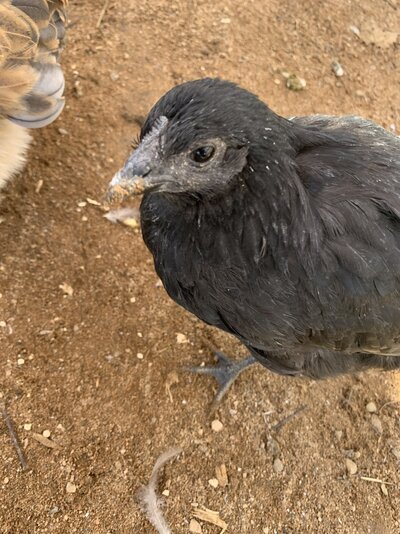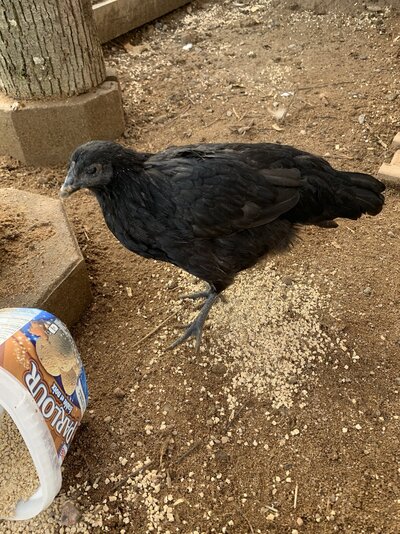Hi everybody and thanks in advance for any advice. My D’Uccle (sp?) has some crusty looking substance on his face. I have 7 birds in total, all are fine except maybe the Cemani but I’m not sure, it might be just dirt. I can’t see any little bugs or anything. All are eating and drinking fine and seem fine behaviourally. They all came from the same place about 6 weeks ago. Nearest vet that will see chickens is 70 km and closed today. Is anyone familiar with this? Thank you very much.

Navigation
Install the app
How to install the app on iOS
Follow along with the video below to see how to install our site as a web app on your home screen.
Note: This feature may not be available in some browsers.
More options
You are using an out of date browser. It may not display this or other websites correctly.
You should upgrade or use an alternative browser.
You should upgrade or use an alternative browser.
Crusty Stuff on Face
- Thread starter TracyDW
- Start date
Pics
More options
Who Replied?I would clean the faces off with warm water and soft cloth. The first one may have some eye drainage that is causing crusts to form. In the other one, it might be that or dry skin. Vaseline or something similar can be applied to dry skin. If there is eye drainage, that can be a sign of a respiratory disease or conjunctivitis. You can flush the eye with saline, and apply Terramycin eye ointment or plain Neosporin ointment twice a day.
- Thread starter
- #3
Thank you very muchHi everybody and thanks in advance for any advice. My D’Uccle (sp?) has some crusty looking substance on his face. I have 7 birds in total, all are fine except maybe the Cemani but I’m not sure, it might be just dirt. I can’t see any little bugs or anything. All are eating and drinking fine and seem fine behaviourally. They all came from the same place about 6 weeks ago. Nearest vet that will see chickens is 70 km and closed today. Is anyone familiar with this? Thank you very much.View attachment 2865668
 wish me luck lol. He is skittish and probably won’t like me very much after I do that
wish me luck lol. He is skittish and probably won’t like me very much after I do thatSometimes it can be easier to handle them when the go to roost at night after dark, or very early before daylight. You can have everything ready, use a headlamp with a red light, take them off the roost, sit in a chair and hold them to examine or perform any treatments. Good luck.
New posts New threads Active threads
-
Latest threads
-
-
-
Outside Skirting … is this ok?
- Started by Rick&Chris
- Replies: 2
-
-
-
-
Threads with more replies in the last 15 days
-
-
-
-
Please Help! Eggbound & Possible Prolapsed Vent
- Started by Elspeth Dinsmore
- Replies: 103
-
Can I get some help from someone with careless neighbours who own dogs.
- Started by RiDaGeckoGuy
- Replies: 102
-






